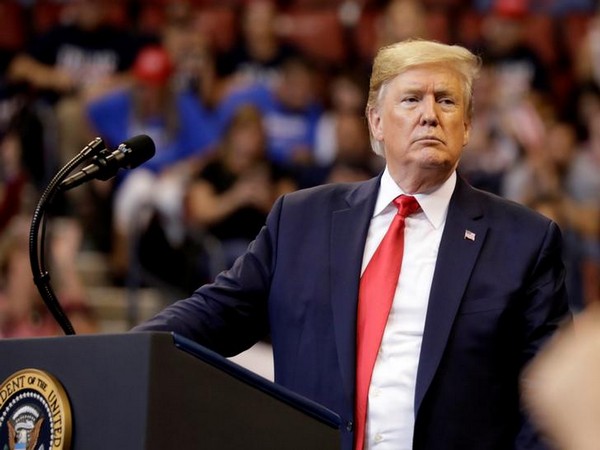UPDATE 2-As U.S. House impeachment looms, Senate, Trump grapple over next moves

- Country:
- United States
As the U.S. House of Representatives moves closer to impeaching Donald Trump, larger questions loom in the Senate, where the president may be headed for a rare conflict with his Republican allies over how any trial will be conducted. The House Judiciary Committee is due to meet at 7 p.m. on Wednesday (0000 GMT) to consider formal articles of impeachment accusing Trump of abusing his power by trying to force Ukraine to investigate a political rival and of obstructing Congress when lawmakers tried to look into the matter.
The committee is expected to approve the charges on Thursday. The full House, which is controlled by the Democrats, is likely to follow suit next week, making Trump the third president in U.S. history to be impeached. Trump, who maintains that he did nothing wrong, has said he wants to see a full, public trial that he hopes would flesh out the case against conviction when the charges are taken up by the Republican-controlled Senate in the new year. Trump has used the threat of impeachment to stir up his supporters and raise campaign funds in an election year.
Senate Democratic leader Chuck Schumer has also said he hopes for a "full" and "open" trial. But Majority Leader Mitch McConnell, a close Trump ally, displays little sign of enthusiasm for a protracted process.
If the House approves the charges, a trial would be the Senate's "first order of business in January," McConnell said on the Senate floor on Wednesday. Much will depend on the attitude of his 52 fellow Republicans.
Senator Lindsey Graham, another Trump ally, said he was not keen on calling "a bunch of witnesses." "I think as an American the best thing we can do is deep-six this thing," Graham told reporters on Wednesday.
Democrats say Trump endangered the U.S. Constitution, jeopardized national security and undermined the integrity of the 2020 election by pressuring Ukrainian President Volodymyr Zelenskiy in a July 25 telephone call to investigate former Vice President Joe Biden, a leading candidate for the Democratic presidential nomination. The articles of impeachment do not draw on other, more contentious aspects of Trump's tenure, such as his efforts to impede former Special Counsel Robert Mueller's Russia probe. Democratic lawmakers who represent more conservative districts have argued that the focus should stay on Ukraine.
"I think you'll see virtually all the Democrats support these articles," said Representative David Cicilline, who chairs a House Judiciary subcommittee. Republicans say Democrats have yet to prove their case and that they are just trying to undo Trump's 2016 victory.
"It's just as likely the president had good reasons to say what he did on the phone call as nefarious reasons that the Democrats think," said Republican Representative Debbie Lesko.
FRIENDLIER TERRAIN
Trump will be on friendlier terrain in the Senate, where Democrats are not expected to pick up the 20 Republican votes they need at a minimum to drive Trump from office. In a trial, which would be presided over by Supreme Court Chief Justice John Roberts, Trump says he wants to see testimony from witnesses, including Biden and his son Hunter, House Speaker Nancy Pelosi and other Democratic lawmakers.
McConnell has said he wants lawmakers to return to their regular business at a time when Republicans will be campaigning for the 2020 election on a message of a strong U.S. economy. A longer trial would likely overlap with the Democratic Party's first presidential nominating contests in Iowa and New Hampshire in early February. Five U.S. senators are among a wide field vying for the nomination.
McConnell, who says no decision has been made over how to conduct the trial, will need a majority of the Senate's 100 members to agree to the final plan. That could put a handful of Republican moderates, like Susan Collins and Lisa Murkowski, in the position of deciding how much time the chamber would devote to the proceedings.
During Democratic President Bill Clinton's 1999 impeachment trial, no witnesses testified on the Senate floor. Instead, videotaped depositions were conducted with just a few witnesses, which senators screened behind closed doors. Clinton was acquitted in the Senate on charges arising from his sexual relationship with White House intern Monica Lewinsky.
(This story has not been edited by Devdiscourse staff and is auto-generated from a syndicated feed.)
ALSO READ
House Speaker Mike Johnson is working with the White House to push forward Ukraine aid efforts
US meets with Venezuelan officials to express concerns about electoral process - White House
Biden to meet top national security staff on Middle East, White House says
White House says Iran has begun airborne attack against Israel
Iran has begun airborne attack on Israel: White House










